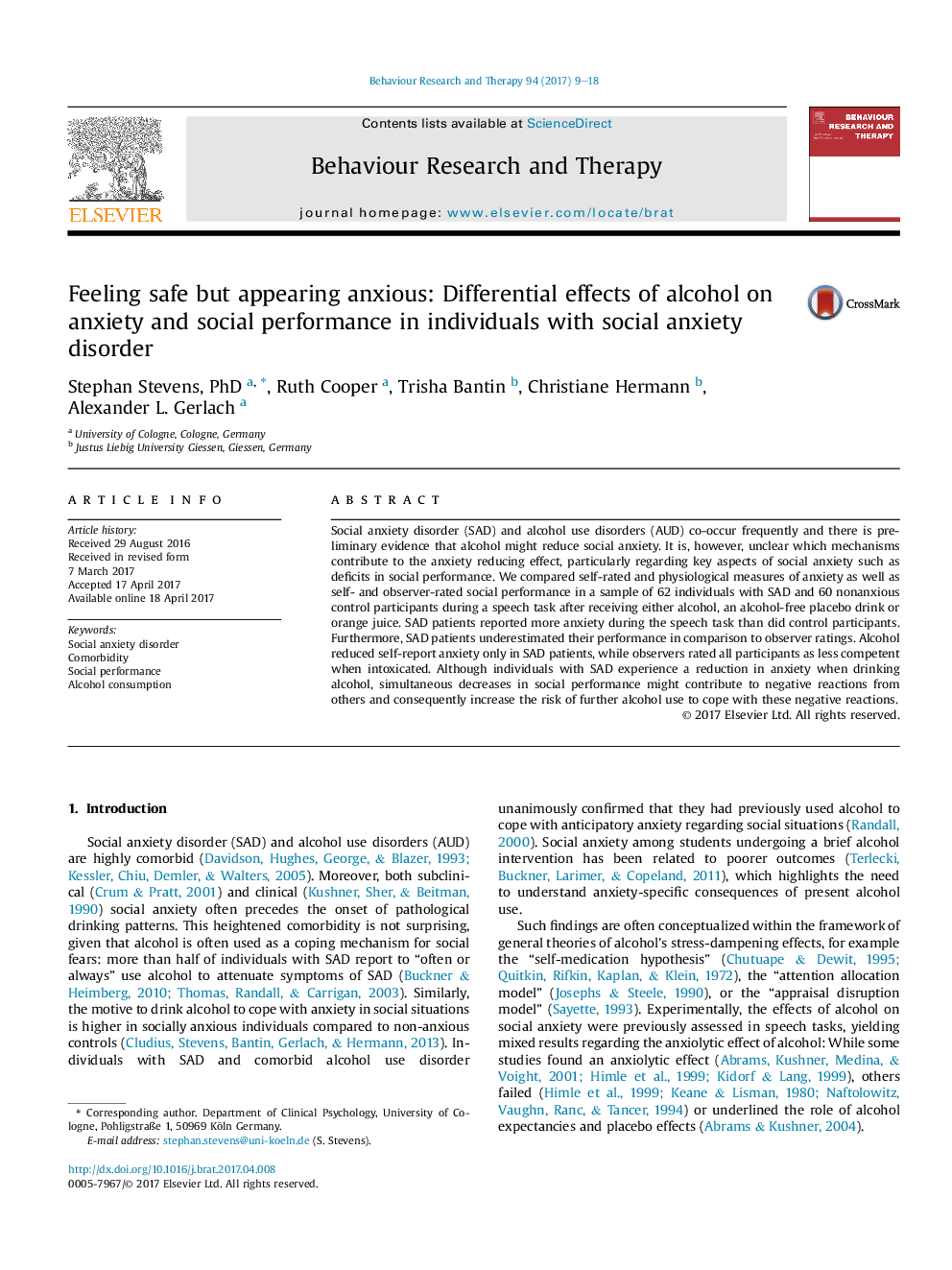| Article ID | Journal | Published Year | Pages | File Type |
|---|---|---|---|---|
| 5038231 | Behaviour Research and Therapy | 2017 | 10 Pages |
â¢Alcohol use disorders and social anxiety disorder are highly comorbid.â¢Acute alcohol intake reduces anxiety while giving a speech in individuals with SAD but not in healthy controls.â¢Acute alcohol intake, however, does not influence self-perception of speech performance in individuals with SAD.â¢Alcohol has a detrimental effect on observer rated social performance.
Social anxiety disorder (SAD) and alcohol use disorders (AUD) co-occur frequently and there is preliminary evidence that alcohol might reduce social anxiety. It is, however, unclear which mechanisms contribute to the anxiety reducing effect, particularly regarding key aspects of social anxiety such as deficits in social performance. We compared self-rated and physiological measures of anxiety as well as self- and observer-rated social performance in a sample of 62 individuals with SAD and 60 nonanxious control participants during a speech task after receiving either alcohol, an alcohol-free placebo drink or orange juice. SAD patients reported more anxiety during the speech task than did control participants. Furthermore, SAD patients underestimated their performance in comparison to observer ratings. Alcohol reduced self-report anxiety only in SAD patients, while observers rated all participants as less competent when intoxicated. Although individuals with SAD experience a reduction in anxiety when drinking alcohol, simultaneous decreases in social performance might contribute to negative reactions from others and consequently increase the risk of further alcohol use to cope with these negative reactions.
